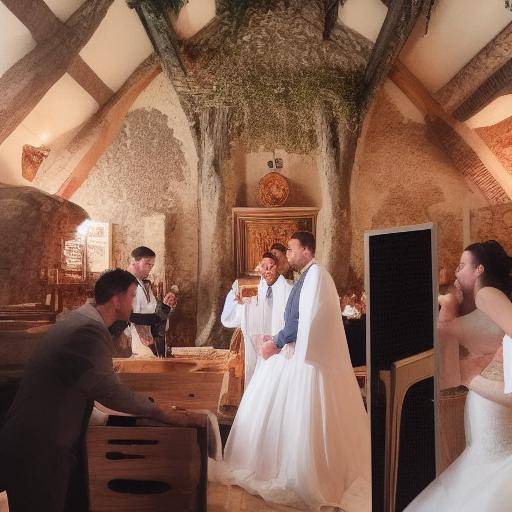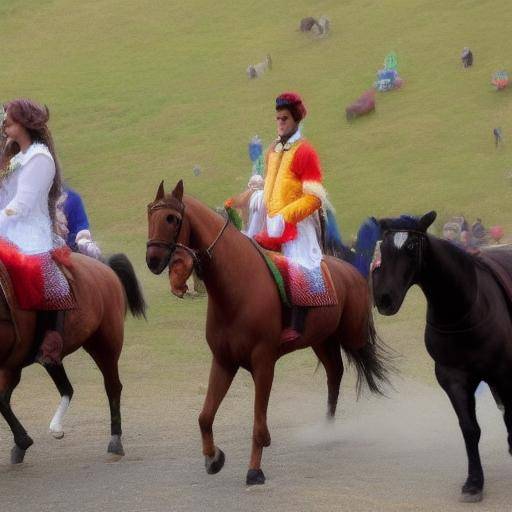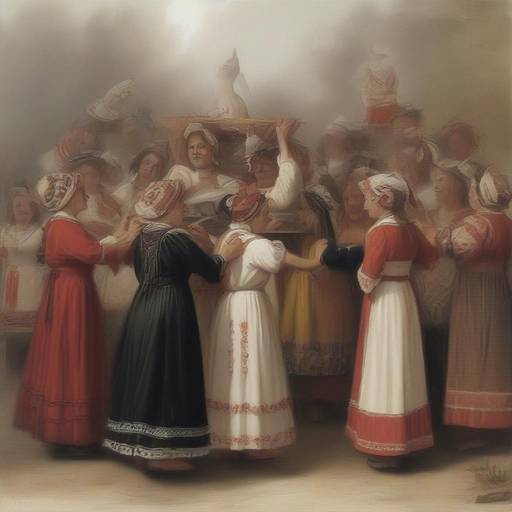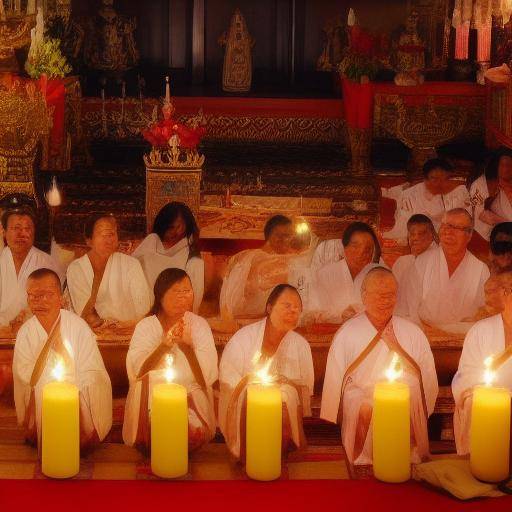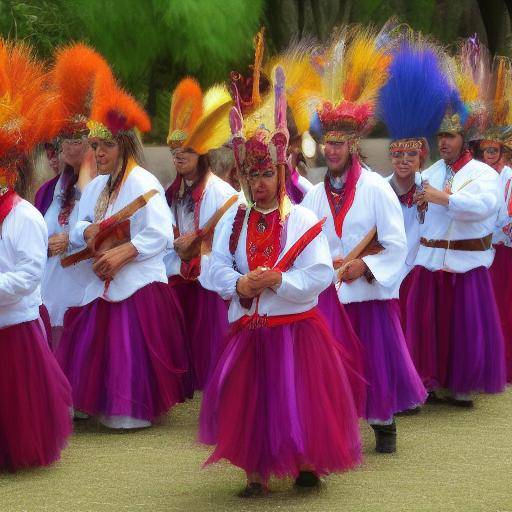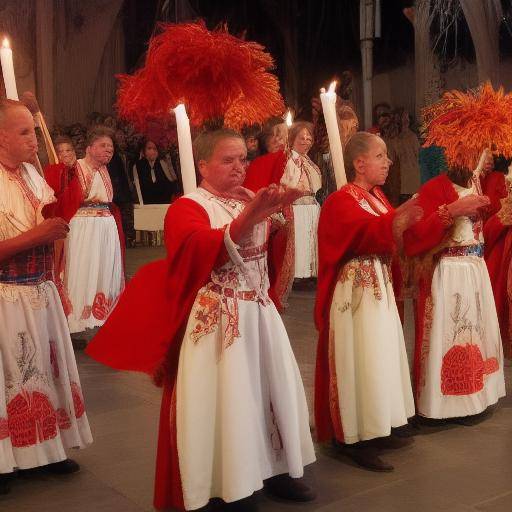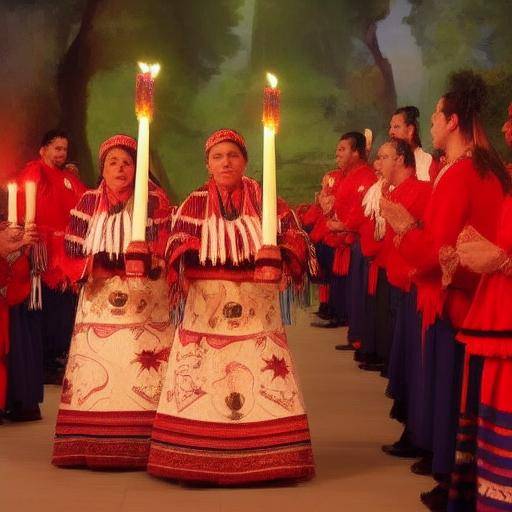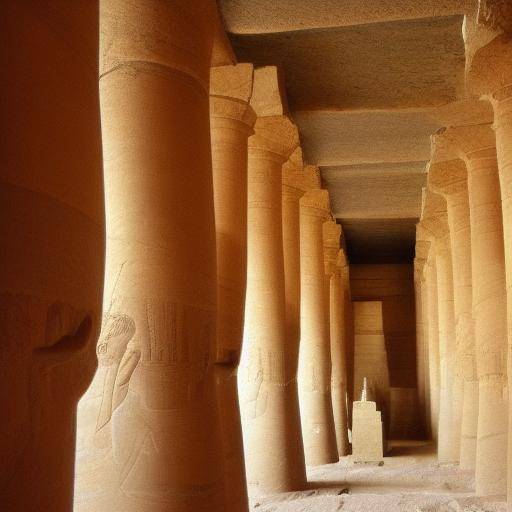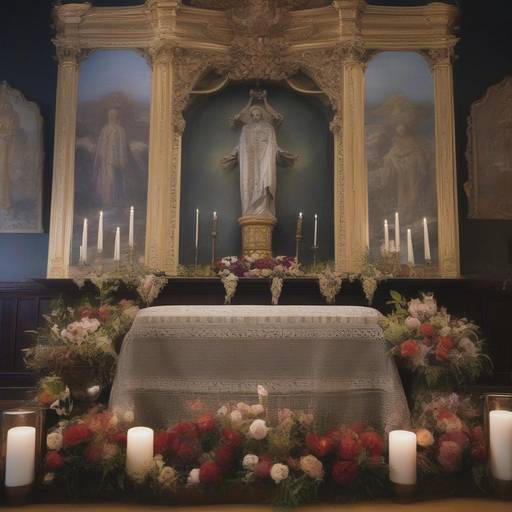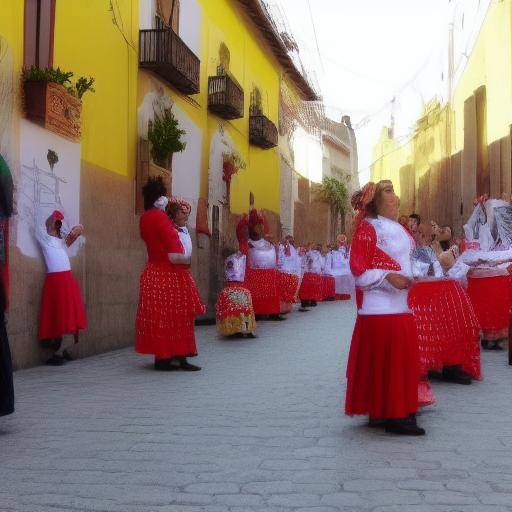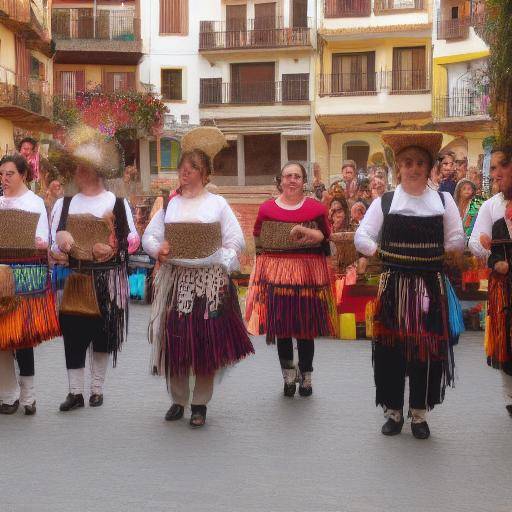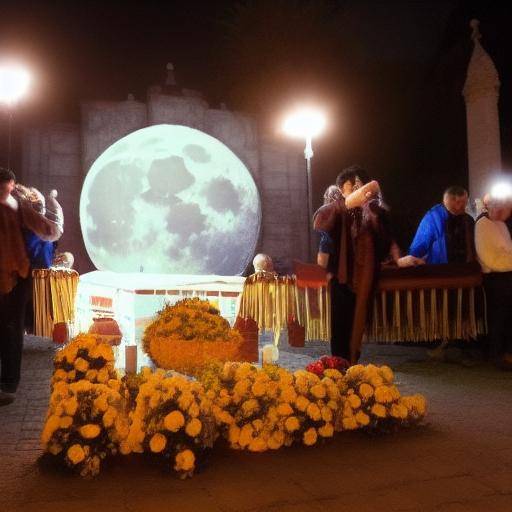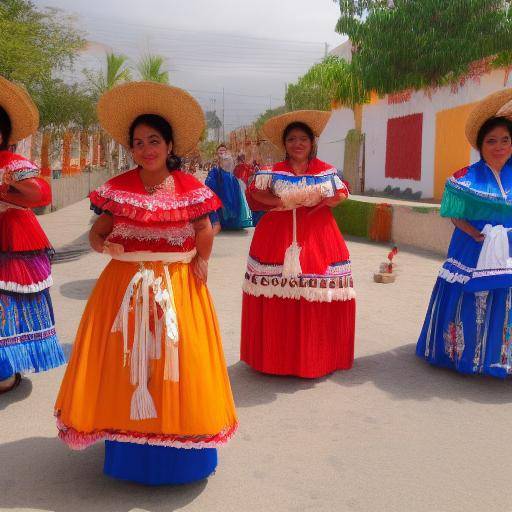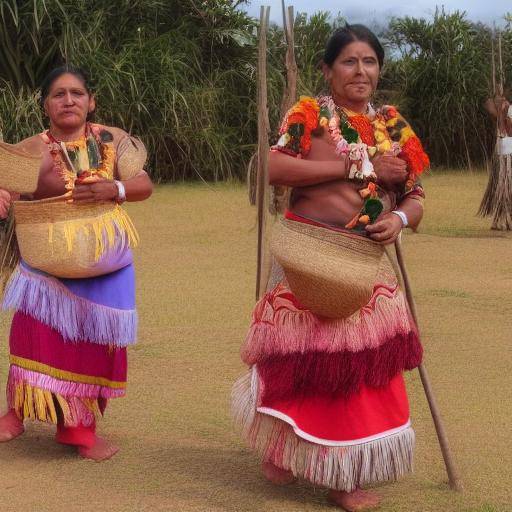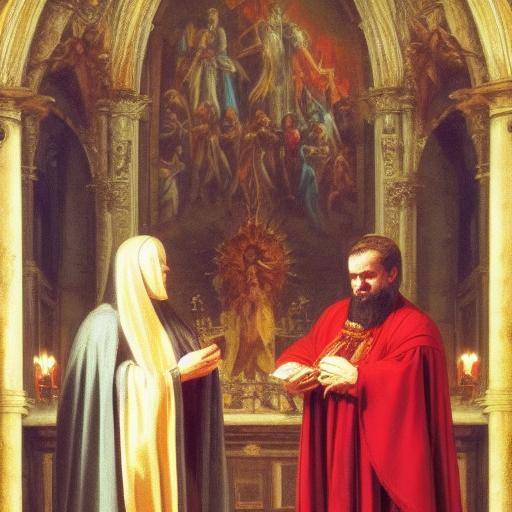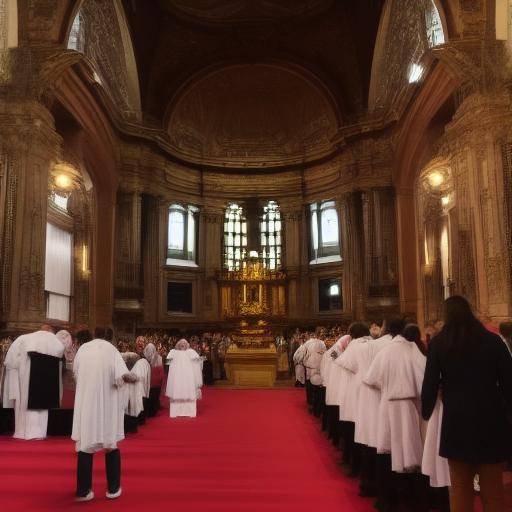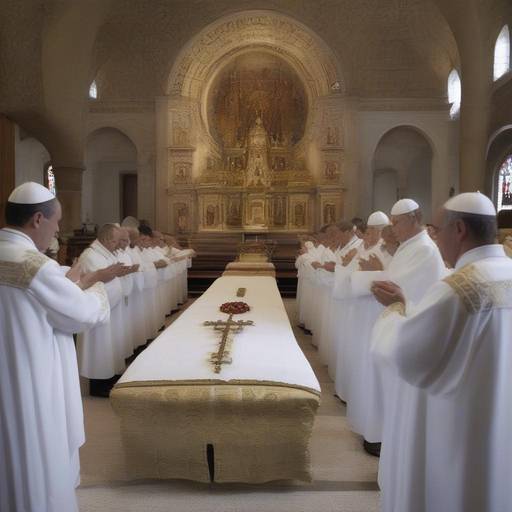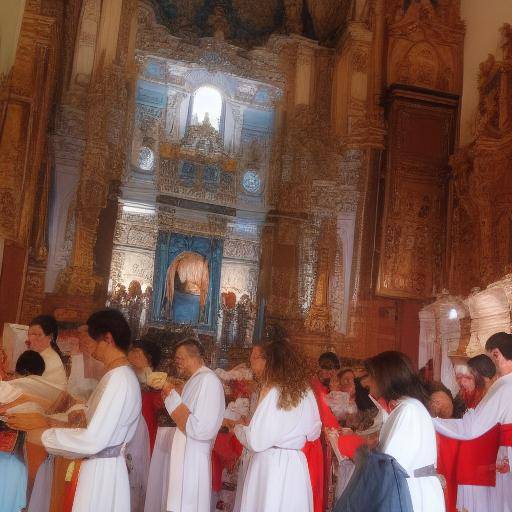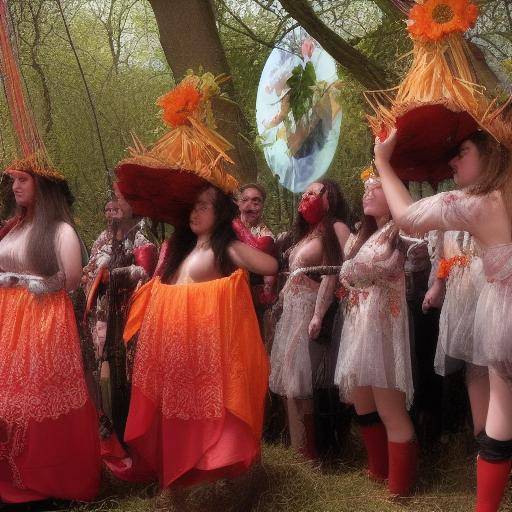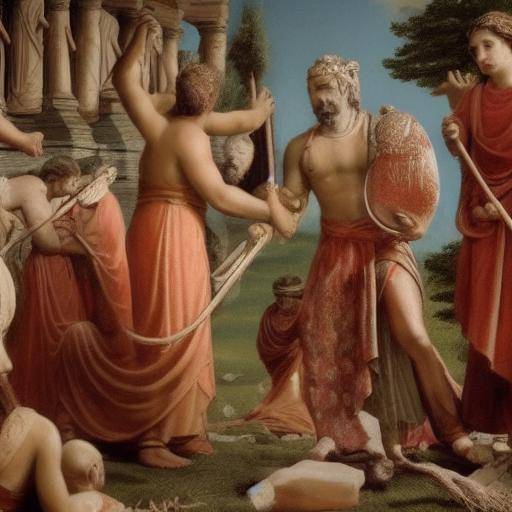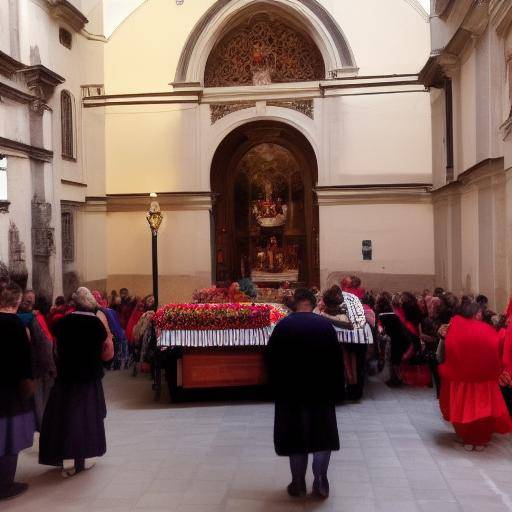
Introduction
Since time immemorial, funeral traditions have been a reflection of the beliefs, values and worldview of cultures. In this sense, Celtic culture, with its rich mythology and deep connection to nature, offers us a fascinating approach to funeral rituals. In this article, we will explore in detail the funeral traditions in Celtic culture, its rich historical background, associated rituals and its contemporary relevance. Join us on this journey to discover the depth and meaning of funeral practices in ancient Celtic culture.
History and Background
Celtic culture, known for its deep connection to nature and its rooted rituals, had funeral traditions that reflected its unique vision of life and death. From prehistoric times, Celtic culture showed a profound reverence for its ancestors and a belief in spiritual continuity beyond earthly life. The Celts honored their deceased loved ones through intricate rituals that symbolized the transition of the soul to the Beyond. These rituals, involving both the community and the family, ranged from elaborate burials to cremation ceremonies, accompanied by chanting, offerings and elaborate funeral decorations.
The arrival of Christianity to the Celtic lands saw the intersection of these ancient funeral traditions with the new religious beliefs, whose syncretism was reflected in rituals combining Celtic and Christian elements. Over the centuries, these practices have influenced the funeral customs of the Celtic regions, such as Ireland, Scotland, Wales and parts of the Iberian peninsula.
Deep analysis
Celtic funeral traditions are permeated with a deep connection to nature and a strong emphasis on spirituality. Celtic funerary rituals not only honored the deceased, but also symbolized the transition of the soul to the other world, marking a momentous moment where the community would come together to provide comfort and mutual support. These rituals have left a lasting mark on Celtic culture, and their influence is observed even today, where there is a resurgence of interest in these ancestral practices.
Comprehensive review
Funeral traditions in Celtic culture transcend the mere act of dismissing a loved one. Today, these rituals evoke a sense of connection with nature, offering comfort to those who go through the mourning process. As contemporary society seeks to rediscover its harmony with nature, Celtic funeral traditions offer valuable teachings on the importance of honoring the cycle of life and death, as well as spiritual continuity beyond earthly existence.
Comparative analysis
By comparing Celtic funeral traditions with other cultural systems, his deep connection with the nature and cycles of life is highlighted. Unlike more conventional approaches, Celtic funeral rituals honor both past life and the continuity of spirit in the time and environment around them. This connection to the nature and cycle of life and death is a unique and significant aspect of Celtic funeral traditions.
Practical Tips and Accessible Recommendations
While Celtic funeral traditions may seem alien to contemporary reality, they offer valuable lessons on the handling of duel and the importance of connection with nature in the farewell processes. At times of loss, the knowledge of these ancestral practices can provide comfort and a renewed perspective on the cycle of life and death. By honoring the nature and continuity of the spirit, Celtic funeral traditions offer a unique perspective that can enrich contemporary rituals.
Conclusion
In short, funeral traditions in Celtic culture represent a deep connection with nature, spirituality and the continuity of the soul beyond earthly life. These rituals, rooted in an ancestral worldview, offer significant teachings on mourning, connection with nature and spiritual transcendence. Through the study of these practices, we can appreciate the importance of honoring the cycles of life and death, as well as finding comfort in the continuity of the spirit. May this knowledge inspire us to integrate these valuable teachings into our contemporary life.
Frequently asked questions
**1. How was the mourning process carried out in Celtic funeral traditions?**In Celtic culture, the mourning process involved a deep connection with the community, farewell rituals that honored the deceased and a reverence for spiritual continuity. Celtic funeral practices offered comfort and mutual support at times of loss.
**2. What is the meaning of the connection to nature in Celtic funeral traditions?**The connection with nature in Celtic funeral traditions symbolizes belief in the continuity of the cycle of life and death, as well as spiritual transcendence in the natural environment.
**3. Can the teachings of Celtic funeral traditions be applied today?**Yes, the teachings of Celtic funeral traditions offer valuable lessons on the management of duel, the connection with nature and spiritual transcendence that can be relevant today.
**4. How did Celtic funeral traditions influence subsequent beliefs?**Celtic funeral traditions left a lasting mark on the regions where they developed, influencing Christian funeral practices and the cultural fabric of Celtic communities.
**5. What lessons on the connection to nature can we learn from Celtic funeral traditions?**Celtic funeral traditions teach us the importance of honoring the cycle of life and death, as well as of finding comfort in connection with nature and natural cycles.
**6. What is the contemporary relevance of Celtic funeral traditions?**At present, Celtic funeral traditions offer a renewed perspective on mourning, connection with nature and spiritual transcendence, which can be significant in the contemporary context.
With this, we conclude our journey through funeral traditions in Celtic culture, we hope that this article has offered an enriching and meaningful vision of these ancestral practices. Through the study and understanding of these traditions, we can appreciate the richness of the Celtic cosmovision and its lasting impact today.






